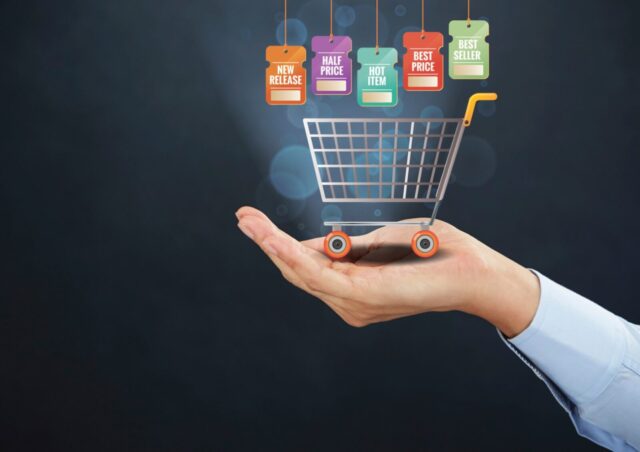
Online shopping on e-commerce websites has become a norm in today’s fast-paced world. It has revolutionized the way we shop, and it has given us access to products from all around the world. With just a few clicks, we can have the latest gadgets, clothes, and other products delivered right to our doorstep. But have you ever wondered why we buy what we buy online? What motivates us to make a purchase?
In this article, we will explore the psychology behind online shopping and the reasons why we buy what we buy.
The Appeal of Online Shopping

Convenience and Accessibility
The convenience and ease of access offered by online purchasing like Temu cannot be matched by shopping in traditional stores made of brick and mortar. We don’t have to leave the house or deal with crowded stores because we can shop and look at merchandise without leaving the convenience of our own houses. The ability to buy online around the clock means that we can make purchases whenever it is most convenient for us.
Greater Variety and Choice
Online shopping also offers a greater variety and choice of products than traditional stores. We can access products from all around the world, and we have access to a wider range of brands and products than we would in a physical store. This greater choice and variety can be overwhelming at times, but it also means that we are more likely to find exactly what we’re looking for.
Lower Prices and Discounts
Another appeal of online shopping is the potential for lower prices and discounts. Online retailers often have lower overhead costs than traditional stores, and they can pass these savings on to customers. In addition, online retailers frequently offer discounts and promotions, which can make shopping online even more appealing.
The Psychology of Online Shopping

Emotions and Feelings
Emotions and feelings influence a significant portion of the purchasing decisions that we make. When we come upon a thing that we are interested in purchasing, we could experience feelings of excitement, happiness, or even a sense of haste to make a purchase before the product is no longer available. When we make a purchase, we could also experience pleasure or a sense of fulfillment in addition to those sentiments.
Social Proof and Influence
We are also influenced by the opinions and actions of others. Online reviews and ratings can have a significant impact on our purchasing decisions, as we are more likely to trust the opinions of other consumers than we are to trust the marketing messages of retailers. Social media can also influence our purchasing decisions, as we may be influenced by the products that our friends and followers are buying.
Cognitive Biases
The decisions that we make to buy things are also influenced by cognitive biases. When we make a choice, for instance, we have the propensity to place an excessive amount of weight on the very first piece of information that comes to our attention. This phenomenon is known as the “anchoring effect.” Because of this, we run the risk of misjudging the worth of a product based on its price or other considerations.
The phenomenon known as “confirmation bias” describes our propensity to look for evidence that backs up our preexisting opinions while ignoring evidence that runs counter to those beliefs. Because of this, the decisions that we make regarding our purchases may be skewed or based on insufficient information.
Strategies for Online Retailers

The array of tactics that online businesses have at their disposal to sway our shopping choices is endless. These may include the following:
Personalization
It is possible for consumers to feel more connected to a retailer and increase our likelihood of making a purchase by receiving personalized product recommendations and marketing communications.
Social Proof
The choices that we make to buy things might be influenced by social evidence, which can come in the form of ratings and reviews left by other customers.
Scarcity and Urgency
Inducing a sense of FOMO (fear of missing out) and motivating us to make a purchase can be accomplished by generating a sense of scarcity or urgency through means such as limited-time specials or warnings of low stock levels.
Easy and Fast Checkout Process
Online retailers offer a pleasant checkout process in order to keep the expectation that we will certainly complete a purchase, thus saving our shopping carts and increasing the likelihood that we’ll effectively buy those products.
Conclusion
Understanding the thought processes that go into our purchases can assist us in making more informed choices as customers, which is especially helpful given the pervasiveness of online buying in our everyday lives. Emotions, social proof, and cognitive biases all play a part in the decisions that we make regarding our purchases, and online retailers have a range of tactics at their disposal to try to influence our actions. If we are conscious of these factors, we will be able to make purchases online that are better informed and more deliberate.
FAQs

How can I avoid making impulse purchases when shopping online?
Before going ahead and selecting “buy,” it is necessary to give your purchase decision some serious thought and reflection. Consider whether or not you really require the product, as well as whether or not it fits in with your priorities and values.
How can I find the best deals when shopping online?
You may locate the finest offers by checking the prices offered by a variety of websites and waiting for sales or other types of promotions to become available.
Why do I sometimes regret purchases I make online?
Online shopping can be a fast and impulsive experience, and it’s easy to get caught up in the moment. Taking time to consider your purchasing decision and doing research beforehand can help you avoid regret.
Can online retailers manipulate our purchasing decisions?
While online retailers can use various strategies to influence our behavior, ultimately, it is up to us as consumers to make informed and intentional decisions.
How can I protect my personal information when shopping online?
Ensure that the website you are shopping on is secure and reputable, and use strong passwords and two-factor authentication when possible.









